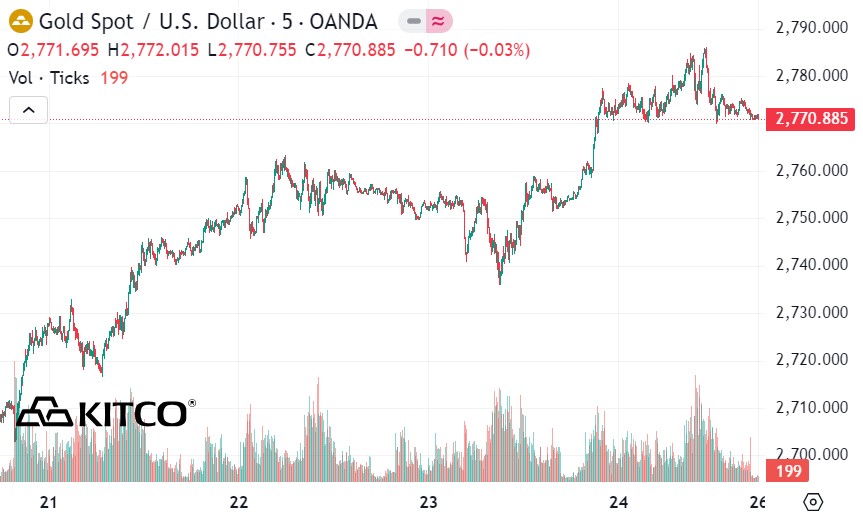According to Kitco - President Trump's aggressive trade policies have attracted great interest from investors, thanks to gold's strategic role in offsetting the impact of rising inflation.
Gary Wagner, a commodities broker and market analyst, told Kitco that Trump’s initial policy actions were characterized by a series of bold executive orders, including proposed tariffs, immigration reform and withdrawals from international agreements. These actions had a ripple effect in financial markets, especially in how investors viewed inflation hedges and safe-haven assets.
The proposed tariff strategy is a key driver that could boost gold prices. Mr. Trump has proposed imposing tariffs of about 25% on Canada and Mexico, and 10% on imports from China, starting February 1.
Deutsche Bank estimates that these tariffs could push inflation from 2.9% in December to 3.7% by the end of 2025, raising total inflation by 1.2%.

Goldman Sachs analysts predict that this inflationary pressure could significantly boost investment demand for gold. As import costs rise and consumer prices climb, investors are likely to allocate more capital to gold as a financial hedge.
Geopolitical uncertainty also adds to the appeal of gold. Trump’s assertive foreign policy approach has made gold an attractive safe-haven asset. Investors are closely watching the correlation between inflation trends and potential moves by the US Federal Reserve.
Jim Wyckoff, senior analyst at Kitco, believes gold prices could set a new record high next week.
“The charts are very positive and risk aversion is becoming more evident as the market awaits actions from the Trump administration,” said Jim Wyckoff.
Economic calendar affects gold price next week
Next week's economic calendar will focus on central banks around the globe, with the US Federal Reserve and Bank of Canada announcing interest rate decisions on Wednesday, followed by the European Central Bank on Thursday.
Markets will also be paying attention to a number of U.S. economic data, including December new home sales on Monday, durable goods and consumer confidence reports on Tuesday, fourth-quarter GDP, weekly jobless claims and pending home sales on Thursday, and PCE, personal income and personal spending on Friday morning.











